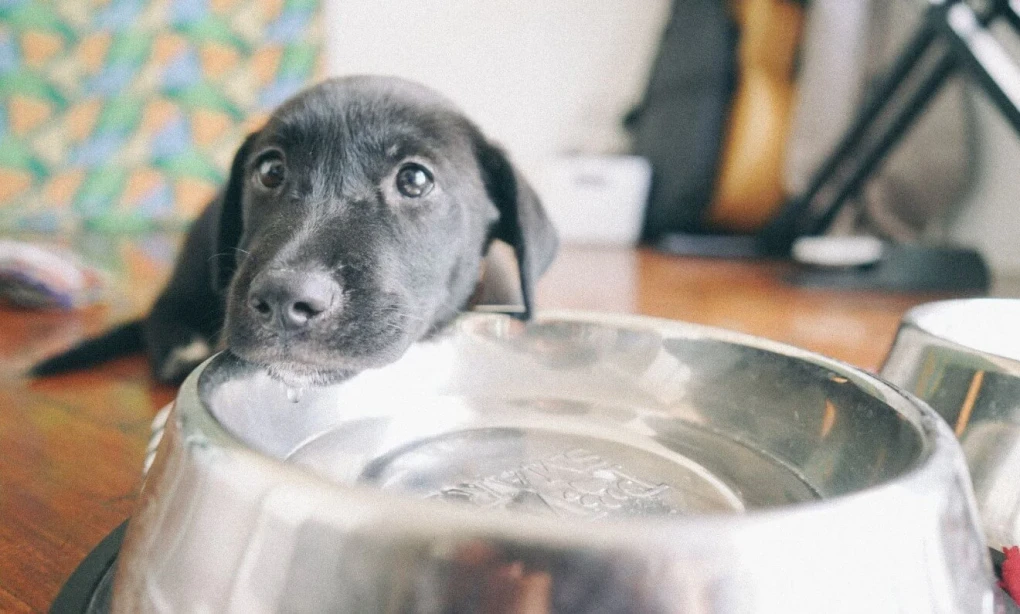Why is My Dog Biting Their Water? Cause For Concern or Normal

As dog owners, we often encounter behaviors that leave us puzzled and wondering about their underlying causes. One such behavior is when our dogs bite or snap at their water while drinking. In this blog post, we'll delve into the reasons behind this seemingly odd behavior and provide insights into why dogs engage in this peculiar action.
Exploring Natural Instincts:
Biting or snapping at water is a behavior rooted in a dog's natural instincts. Dogs are descendants of wild canines, and their ancestors had to fend for themselves in the wild, where water sources were not always readily available or safe to drink from. Biting at water allowed them to capture and control the limited resources they came across.
Biting or snapping at water is a behavior rooted in a dog's natural instincts. Dogs are descendants of wild canines, and their ancestors had to fend for themselves in the wild, where water sources were not always readily available or safe to drink from. Biting at water allowed them to capture and control the limited resources they came across.
Sensory Stimulation:
For some dogs, biting their water may simply be a form of play or an expression of their enjoyment during the drinking process. The sensation of the water splashing or the tactile feedback from biting may provide sensory stimulation, adding an extra level of excitement to their daily hydration routine.
For some dogs, biting their water may simply be a form of play or an expression of their enjoyment during the drinking process. The sensation of the water splashing or the tactile feedback from biting may provide sensory stimulation, adding an extra level of excitement to their daily hydration routine.
Temperature Regulation:
Another reason dogs bite at water is to regulate their body temperature. When a dog bites at water, it creates movement and increases the surface area of water exposed to the air. This action can help cool their tongues and mouths, aiding in thermoregulation, especially during hot weather or after vigorous exercise.
Another reason dogs bite at water is to regulate their body temperature. When a dog bites at water, it creates movement and increases the surface area of water exposed to the air. This action can help cool their tongues and mouths, aiding in thermoregulation, especially during hot weather or after vigorous exercise.
Natural Water Filter:
Dogs have an innate ability to detect impurities or foreign objects in their water. By biting at water, they may be instinctively filtering out debris, such as dust, insects, or even a stray leaf, before consuming it. This behavior serves as a precautionary measure to avoid ingesting potentially harmful substances.
Dogs have an innate ability to detect impurities or foreign objects in their water. By biting at water, they may be instinctively filtering out debris, such as dust, insects, or even a stray leaf, before consuming it. This behavior serves as a precautionary measure to avoid ingesting potentially harmful substances.
Fun and Entertainment:
Some dogs may simply find the act of biting at water entertaining or amusing. It could be a way for them to engage in self-amusement or to seek attention from their owners. The interaction with water and the resulting splashes can provide a playful and interactive experience for dogs.
Some dogs may simply find the act of biting at water entertaining or amusing. It could be a way for them to engage in self-amusement or to seek attention from their owners. The interaction with water and the resulting splashes can provide a playful and interactive experience for dogs.
When to Be Concerned:
While biting at water is generally harmless, excessive or compulsive biting, along with other unusual behaviors or signs of distress, may indicate an underlying issue. If you notice any concerning symptoms or changes in your dog's behavior, it's always advisable to consult with a veterinarian to rule out any medical or behavioral issues.
While biting at water is generally harmless, excessive or compulsive biting, along with other unusual behaviors or signs of distress, may indicate an underlying issue. If you notice any concerning symptoms or changes in your dog's behavior, it's always advisable to consult with a veterinarian to rule out any medical or behavioral issues.
The behavior of biting or snapping at water may seem perplexing, but it often stems from a combination of natural instincts, sensory stimulation, temperature regulation, and personal enjoyment. It's essential to observe your dog's overall behavior and health to ensure there are no underlying concerns. As responsible pet owners, let's embrace and appreciate these unique quirks, providing our furry friends with a safe, enjoyable drinking experience as they satisfy their instinctual behaviors.